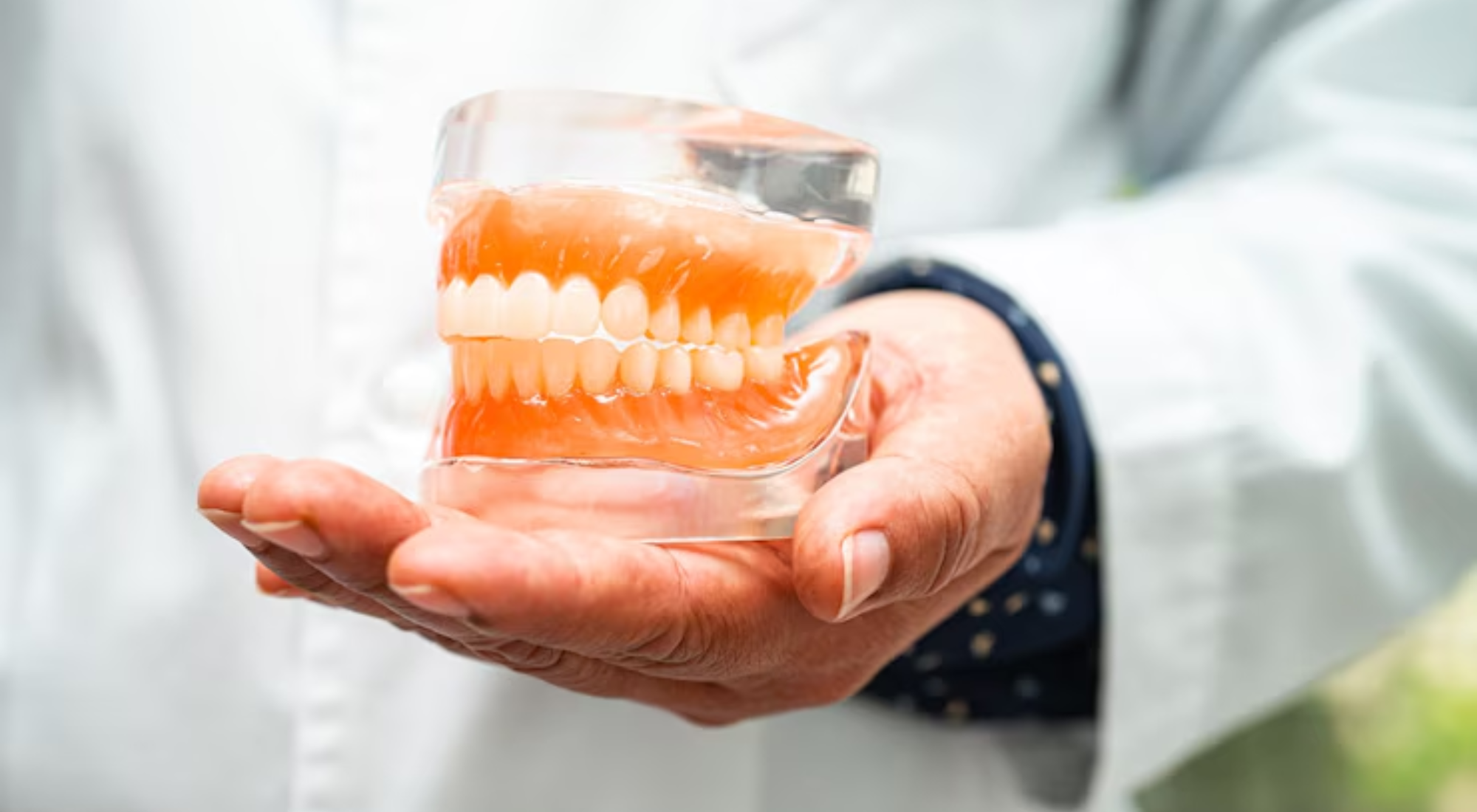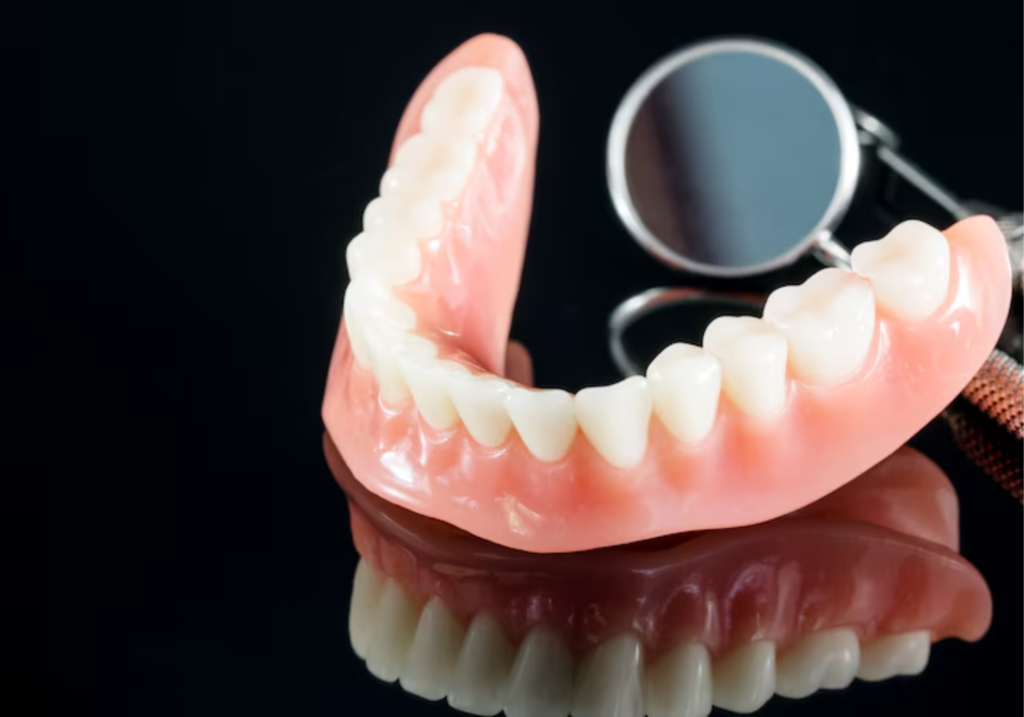Published on April 12, 2024

Implant dentures offer a revolutionary solution for individuals seeking to restore their smile and regain functionality lost due to missing teeth. While the prospect of implant dentures may seem enticing, many potential patients are deterred by concerns about the associated cost.
In this blog, we delve into the complexities of the cost of implant dentures and explore whether the investment is truly worthwhile. By examining the factors influencing the cost, weighing the pros and cons, and considering the long-term value, readers will gain a comprehensive understanding of the financial implications of opting for implant dentures.
Let’s dive into the world of implant dentures and uncover the truth behind their cost and worth.
What are Implant Dentures?
Implant dentures represent a modern dental solution designed to replace missing teeth and restore oral function and aesthetics. These prosthetic devices consist of artificial teeth affixed to dental implants surgically placed into the jawbone, providing a secure and stable foundation. Implant dentures, also known as implant-supported dentures, are custom-made dental prostheses designed to replace multiple missing teeth.
Unlike traditional dentures, which rest on the gums or rely on adhesives, implant dentures are anchored to titanium implants surgically inserted into the jawbone. This ensures optimal stability and prevents issues such as slippage or discomfort commonly associated with conventional dentures.

Types of Implant Dentures:
Fixed Implant Dentures: Also known as permanent or non-removable implant dentures, these prostheses are securely attached to dental implants and cannot be removed by the wearer.
Removable Implant Dentures: These implant-supported dentures are designed to be removed for cleaning and maintenance, providing flexibility and convenience for the wearer.
Benefits of Implant Dentures:
Enhanced Stability: Implant dentures offer superior stability and support compared to traditional dentures, allowing for improved chewing efficiency and speech clarity.
Bone Preservation: By stimulating the jawbone, dental implants help prevent bone loss and preserve facial structure, promoting long-term oral health.
Natural Appearance: Implant dentures closely mimic the appearance and function of natural teeth, providing a more aesthetically pleasing and comfortable solution for tooth replacement.
The Average Cost of Implant Dentures
The average cost of implant dentures can vary depending on various factors, including the number of implants required, the type of denture chosen, and geographical location. Additional expenses may include preparatory procedures like bone grafting or sinus lifts, as well as the cost of consultations, imaging, and follow-up appointments. It’s essential to consult with a qualified dentist or prosthodontist to receive an accurate cost estimate based on individual needs and treatment goals.
Factors Influencing the Cost of Implant Dentures
Here are the factors that influence the cost of implant dentures, making it crucial to understand the various considerations before undergoing the procedure:
Material and Quality of Implants:
The type of material used for implants can significantly affect the overall cost.
High-quality materials such as titanium implants may come at a higher price but offer better durability and longevity.
Number of Implants Required:
The number of implants needed to support the dentures directly impacts the total cost.
Full-arch implant dentures typically require more implants than partial dentures, leading to higher costs.
Complexity of the Procedure:
Complex cases, such as those requiring bone grafting or sinus lifts, may incur additional costs due to the increased surgical complexity and time required.
Additional Treatments or Procedures:
Preparatory treatments like extractions, bone grafting, or gum disease treatment may be necessary before implant placement, adding to the overall cost.
Geographic Location and Dental Clinic Fees:
The cost of implant dentures can vary depending on the region and the specific dental clinic.
Urban areas and prestigious clinics may charge higher fees compared to rural areas or smaller practices.
Understanding these factors can help individuals make informed decisions about their implant denture treatment and budget accordingly. Consulting with a qualified dentist or prosthodontist is essential for obtaining accurate cost estimates tailored to individual needs and circumstances.
Pros and Cons of Implant Dentures
Advantages of Implant Dentures
Implant dentures offer several advantages over traditional dentures, making them a popular choice for many individuals:
- Enhanced stability and durability: Implant dentures are securely anchored to dental implants, providing greater stability and reducing the risk of slippage or discomfort.
- Improved chewing and speaking ability: With implant dentures, individuals can enjoy better chewing efficiency and speech clarity, enhancing overall oral function.
- Preservation of jawbone health: Dental implants stimulate the jawbone, helping to prevent bone loss and maintain facial structure over time.
- Natural look and feel: Implant dentures closely mimic the appearance and function of natural teeth, providing a more natural-looking smile and improved confidence.
Potential Drawbacks and Limitations
Implant dentures may also have some potential drawbacks and limitations to consider:
- Surgical procedure: The placement of dental implants requires oral surgery, which may involve some degree of discomfort and recovery time.
- Not suitable for everyone: Certain medical conditions or inadequate bone density may preclude some individuals from being suitable candidates for implant dentures.
Implant Dentures vs. Traditional Dentures
While traditional dentures are more affordable and do not require surgery, they may offer a different level of stability and functionality than implant dentures. Traditional dentures may also require more frequent adjustments and replacements over time compared to implant-supported options.
Determining the Value and Worth of Implant Dentures
Determining the value and worth of implant dentures involves considering various factors beyond just the initial cost:
Long-Term Benefits
- Implant dentures offer long-term benefits, such as improved oral function, enhanced aesthetics, and better overall quality of life.
- Unlike traditional dentures, which may require frequent adjustments and replacements, implant dentures can last for many years with proper care.
- The stability provided by dental implants can prevent bone loss and preserve facial structure, contributing to better oral health in the long run.
Impact on Oral Health and Quality of Life
- Implant dentures can significantly improve oral health by restoring proper chewing function and preventing further deterioration of the jawbone.
- Patients often report increased confidence and satisfaction with implant dentures, as they provide a more natural look and feel compared to traditional options.
- The ability to enjoy a varied diet without restrictions can enhance overall nutrition and well-being, contributing to a better quality of life.
Financial Considerations and Affordability
- While the initial cost of implant dentures may be higher than traditional dentures, many patients find that the long-term benefits outweigh the upfront investment.
- Some dental insurance plans may cover a portion of the cost of implant dentures, helping to make them more affordable for eligible patients.
- Additionally, many dental clinics offer financing options or payment plans to help patients manage the cost of treatment over time.
The decision to invest in implant dentures involves careful consideration of various factors, including cost, benefits, and long-term value. While the initial expense may seem daunting, the potential advantages, such as improved oral health, enhanced quality of life, and long-term durability, make implant dentures a worthwhile investment for many individuals. By weighing the financial implications against the potential benefits, patients can make informed decisions that align with their oral health needs and overall well-being.
Ultimately, consulting with a qualified dental professional is essential for assessing individual needs, discussing treatment options, and determining the most suitable course of action. With proper care and maintenance, implant dentures can offer lasting benefits and provide patients with a confident smile and improved oral function for years to come.
